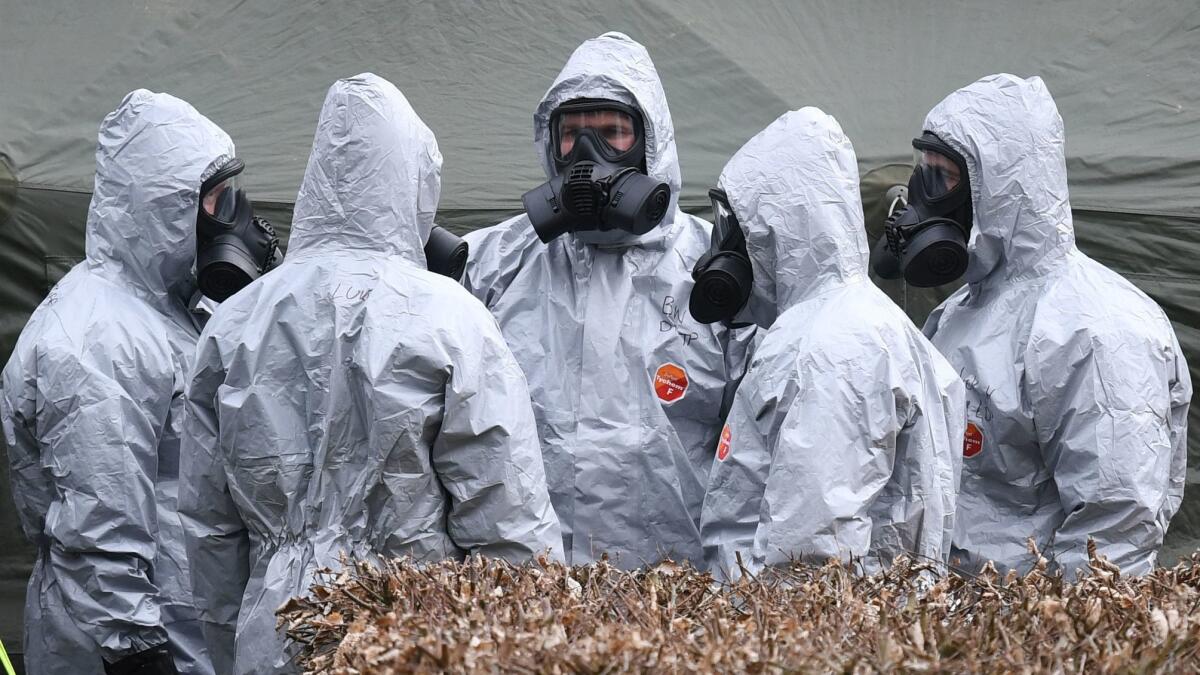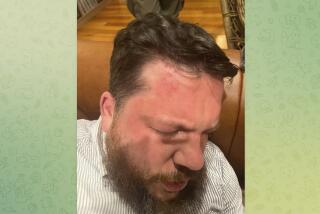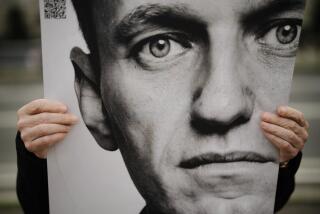Britain accuses Russia of barbaric behavior in poisoning of former spy, identifies two suspects

British officials Wednesday accused Russia of barbaric behavior after authorities named two Russian military intelligence officers as prime suspects in the March poisoning of a former spy and his daughter in the town of Salisbury.
Prime Minister Theresa May said Russian President Vladimir Putin’s government persistently tries to hide the truth through a “deluge of disinformation” and said she would combat the threat posed by Russia’s military intelligence agency, known as GRU.
“We will not tolerate such barbaric acts against our country,” she told lawmakers in Parliament. “And — together with our allies — this government will continue to do whatever is necessary to keep our people safe.”
May said the chemical weapons attack on former spy Sergei Skripal and his daughter, Yulia, should be seen within the wider context of Russia’s ongoing pattern of aggressive behavior and disregard for international law.
She cited Russia’s annexation of Crimea, the launch of a Russian-made missile that brought down a passenger jet flying over eastern Ukraine, and a systematic campaign of cyberespionage and election interference, including in the 2016 U.S. presidential race.
The Skripals were found slumped unconscious on a bench in the medieval cathedral town of Salisbury in March in a case that sparked international uproar and widespread condemnation.
They both survived the attack but spent weeks hospitalized in critical condition while investigators from British defense research laboratory Porton Down established that the chemical used to poison the pair was a military-grade Novichok nerve agent of a type developed by Russia.
“We repeatedly asked Russia to account for what happened in Salisbury in March, and they have replied with obfuscation and lies,” May said. “Their attempts to hide the truth by pushing out a deluge of disinformation simply reinforces their culpability.”
Russia has vehemently denied any involvement in the poisonings. Russia also complained that Britain refused to allow Moscow to take part in a joint investigation.
On Wednesday, prosecutors identified the two military intelligence officers, both Russian nationals, accusing them of the attempted murder of the Skripals and Detective Sgt. Nick Bailey, who fell ill after entering the Skripal’s contaminated home.
British counter-terrorism police released images of the two suspects, giving their names as Alexander Petrov and Ruslan Boshirov, which they believe are aliases.
May said the British government has concluded they are officers from Russia’s military intelligence service.
“The GRU is a highly disciplined organization with a well-established chain of command,” May told lawmakers. “So this was not a rogue operation. It was almost certainly also approved outside the GRU at a senior level of the Russian state.”
The case has plunged relations between Britain and Russia to their lowest since the Cold War.
Hundreds of Russian diplomats and embassy staff were expelled from Britain as well as more than 20 Western allies including the U.S., Canada, France and Germany. Tougher sanctions were also imposed on Russia.
On Wednesday, Russia again denied any involvement. Yuri Ushakov, an aide to Putin, said the latest evidence presented by Scotland Yard was difficult to comprehend.
“We heard or saw two names, but these names mean nothing to me personally, just like you, I believe,” Ushakov told reporters, according to Tass news agency. “I do not understand why that was done, and what signal the British side is sending.”
May said the investigation has involved 250 detectives who trawled through more than 11,000 hours of surveillance camera video and took more than 1,400 statements.
In addition to the charges of attempted murder, the suspects also face charges of conspiracy to murder Sergei Skripal, the use and possession of Novichok and causing grievous bodily harm.
Britain’s Crown Prosecution Service is not applying to Russia for extradition, since Russia says it is against its constitution to extradite its own nationals. But a European Arrest Warrant has been obtained so the pair can be detained if they travel to European Union countries.
Nearly four months after the attack on the Skripals, two British citizens living in a town about 10 miles from Salisbury also fell ill.
Dawn Sturgess, 44, and her partner, Charlie Rowley, 45, came into contact with a small perfume bottle that was used to transport the deadly nerve agent and discarded improperly. Sturgess, a mother of three, died in a hospital in July.
Although officials said Wednesday that they are treating the two attacks as one investigation, no charges have been brought against the Russian intelligence officers in relation to the second incident.
Skripal had reportedly been living quietly in Salisbury at the time of the attack against him and his daughter. He had been sentenced to 13 years in prison in Russia in 2006 after being convicted of being a double agent but was released in 2010 as part of a spy swap.
Investigators said the Russian pair’s detailed movements were traced from March 2 when they flew into London’s Gatwick Airport from Russia and spent two nights at the City Stay hotel in East London. Traces of Novichok were found in their hotel room.
The men visited Salisbury on March 3, for what is believed to have been a reconnaissance mission, and then returned March 4 to poison Skripal and his daughter, officials said.
Surveillance footage of the men “clearly places them in the immediate vicinity of the Skripals’ house at 11:58 a.m., which police say was moments before the attack,” the prime minister said.
The nerve agent was sprayed over the front door of the Skripals’ house using a small bottle labeled as Nina Ricci Premier Jour perfume.
“The manner in which the bottle and packaging has been adapted makes it a perfect cover for smuggling the weapon into the country, and a perfect delivery method for the attack against the Skripal’s front door,” Neil Basu, the Metropolitan Police’s assistant commissioner and national lead for counter-terrorism policing, said Wednesday.
Special correspondents Boyle reported from London and Ayres from Moscow, respectively.
UPDATES:
4 p.m.: This article was updated throughout with Times reporting.
This article was originally published at 3:30 a.m.
More to Read
Start your day right
Sign up for Essential California for news, features and recommendations from the L.A. Times and beyond in your inbox six days a week.
You may occasionally receive promotional content from the Los Angeles Times.







